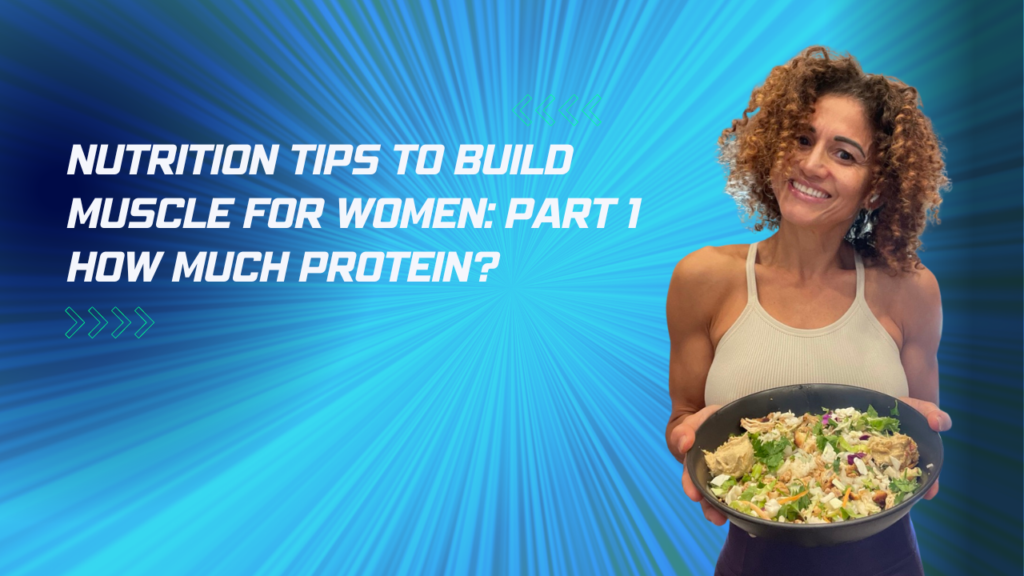
Hey there! If you’re on the lookout for ways to build muscle, you’ve come to the right place. I firmly believe that you should be the one making decisions about your body and how you want to look and feel, and I’m here to help you achieve those goals.
I’m thrilled to see more and more women showing interest in building muscle and gaining strength. It’s incredible to witness women breaking free from the fear of getting bulky and embracing the confidence that comes with resistance training.
Before we dive into muscle-building techniques, let’s talk about the science behind it. Skeletal muscle is made up of unique proteins that can be derived from dietary protein sources like meat, fish, and dairy. But don’t worry if you’re not consuming enough protein in your diet – your body can also break down its own proteins to create the necessary amino acids.
Muscles are constantly in flux, breaking down and rebuilding throughout the day. This is a natural process that helps maintain and strengthen muscles. However, muscle breakdown can occur when we’re fasting or when we don’t have enough protein between meals. But don’t worry. Exercise actually enhances muscle protein synthesis, which is the rebuilding process. Eating protein-rich foods and hitting the gym, especially for strength training, can help build more muscle.
Building muscle is essential for longevity. It not only increases your metabolism, but it also reduces your risk of osteoporosis by making your bones stronger.
To develop more muscle mass and get stronger, it is important to follow an optimal muscle-building diet. This diet should include adequate protein, with strength training women aiming for 1.7 to 1.8 grams of protein per kilogram of body weight each day. A 140-pound woman (63.6 kg) equals approximately 115 grams of protein. It is essential to consume complete protein foods like those from animal sources (meat, dairy) and/or complete vegetarian sources like pea or hemp, as only essential amino acids found abundantly in complete protein stimulate muscle protein synthesis and halt breakdown. Building muscle requires serious strength training, and it is likely that readers of WeFit and Juliana are already doing some of that.
Proper nutrition is essential for repairing and building muscle protein. While the post-exercise period stimulates muscle protein synthesis, it is not sufficient to counteract muscle breakdown. In conjunction with strength training, optimal caloric and protein intake works hand in hand to promote muscle hypertrophy (growth).
This article primarily covers the nutritional aspects of muscle hypertrophy. Therefore, I will not get into resistance training but instead concentrate on dietary protein’s significance. I will discuss sufficient calorie intake, carbohydrate consumption, and creatine supplementation in upcoming articles. These factors play a crucial role in promoting muscle growth. So let’s get started!
How Much Protein Does It Take?
Research has been conducted for decades to determine the ideal quantity of protein needed for muscle protein synthesis. Historically, this research has been performed primarily on men. However, limited science looking at differences between men and women indicates that men may have a higher protein requirement than women because they oxidize more amino acids at rest and in exercise.
For women, as mentioned above the recommendation of 1.7 to 1.8 grams of protein per kilogram of body weight per day appears to apply reasonably accurately.
Some people feel that more protein than this is even more effective, but researchers have shown that the muscle-building effect tops at 2.0 grams of protein per kilogram daily.
Protein has several benefits, including being more thermogenic than carbohydrates or fats, more satiating, and an energy source for exercising muscles.
Protein can also help prevent blood sugar spikes or dips because it converts to glucose more slowly than carbohydrates. This is important when trying to balance blood sugar throughout the day. I recommend having protein with every meal.
Consuming higher amounts of dietary protein offers numerous benefits beyond just muscle gain.
Firstly, protein has a higher thermogenic effect compared to carbohydrates and fats, which means it can aid in burning more calories during a meal.
Secondly, protein is more satiating than carbohydrates and fats, which can help control appetite and reduce the likelihood of storing excess body fat.
Additionally, protein serves as an energy source for exercising muscles and can be used as fuel if carbohydrates and fats are not well-tolerated. Lastly, protein can help regulate blood sugar levels by converting to glucose at a slower rate than carbohydrates.
Research has suggested that there is a ceiling for how much muscle protein can be synthesized per gram of protein eaten per meal, with 20 to 30 grams of protein in a meal being all the body can use to stimulate protein synthesis.
However, it remains unknown whether or not the absolute dose of protein required to stimulate hypertrophy following upper and lower body exercises maximally is greater than 20 to 30 grams.
The best scenario is to regularly consume complete protein throughout the day to maintain high levels of protein synthesis, as it slows down within three to four hours after ingestion. For vegetarians, complete protein powders like pea, rice, or hemp can be used, or a combination of vegetable protein sources can be combined to ensure a complete protein profile in meals.
As you can see, getting the right amount of protein takes planning, and understanding how much for your specific needs takes a little math 😊. But once you know your daily needs, you can start developing muscles that will make you stronger and include other positive benefits for longevity.
Juliana Halloran has been coaching fitness and nutrition for 20 years. To work with her, you can contact [email protected] directly.